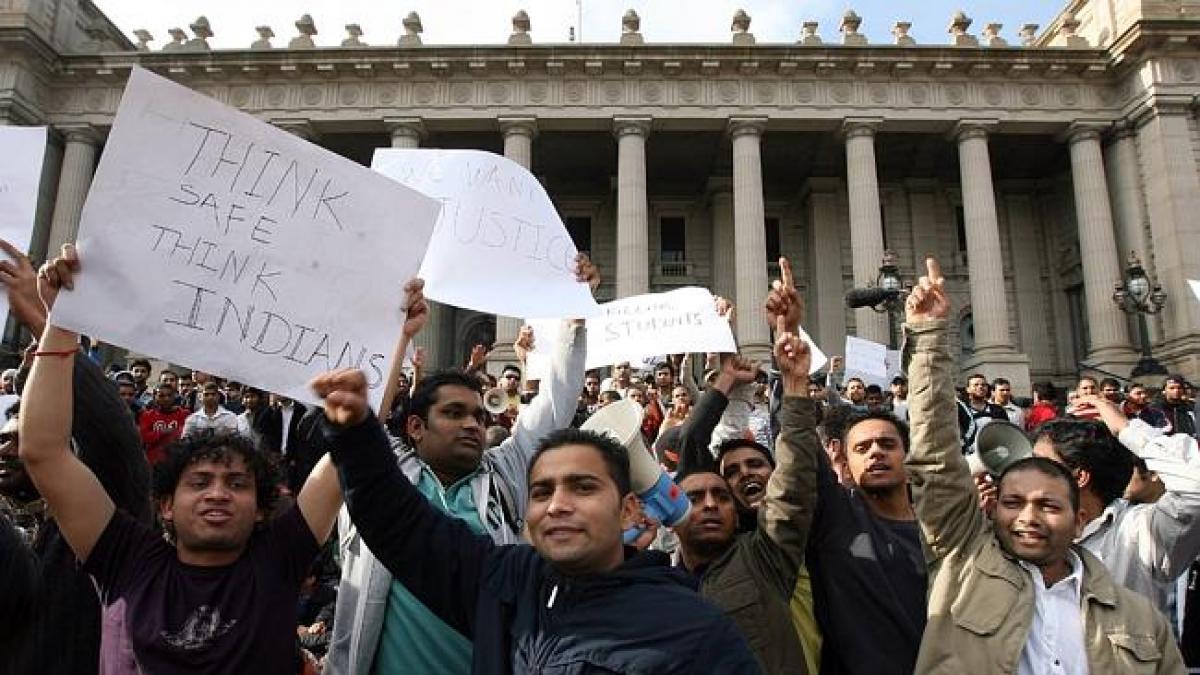Live
- TDP achieves milestone with 73 lakhs membership registration, says Chandrababu
- South Korea: Main Oppn hails Yoon's impeachment motion passage as 'victory for people, democracy'
- RG Kar issue: Tension flared over parallel protests by Congress, SUCI(C) outside CBI offices
- After furore, Central Railway revokes order to raze Lord Hanuman Temple at Dadar
- Now hoteliers' body in Bengal's Alipurduar shut doors for Bangladeshi tourists
- District Collector Encourages Students to Utilize Government Facilities for a Better Future
- Per capita availability of fruits, vegetables increases in India
- FII buying reaches Rs 22,765 crore in Dec as economic growth stays resilient
- National Energy Conservation Day 2024: Date, Importance, and Easy Ways to Save Energy
- Gastronomic trouble: After 'disappearing' samosas Himachal CM in row over red jungle fowl
Just In

They face abuse on the streets, people avoid talking to them, locals do not sit beside them in the metros and sometimes they are beaten -- all of which is \"racial in nature\" feel most students from the African community residing in Delhi.
They face abuse on the streets, people avoid talking to them, locals do not sit beside them in the metros and sometimes they are beaten -- all of which is "racial in nature" feel most students from the African community residing in Delhi.
The Africans in Delhi term the behaviour of society towards them as "very unfair", as they are not even allowed to present their side of the story with the law enforcement agencies.
Samuel Jack, a 25-year old Nigerian student, residing in south Delhi for the last four years, told IANS: "We fear street attack when we are out, and what adds to our misery is the bad policing as we are not even allowed to represent our side."
Samuel Jack is secretary of the Association for African Students in India.
"There are a lot of issues that we face here, from finding an accommodation, to racial abuses because we are students here," he said, adding, "I am speaking to you on behalf of the African students and not on behalf of the African community."
Ibrahim Djid, a 25-year old Libyan national who has been staying in India since 2011 and studies Business Administration at the Noida International University in the national capital region, says his family now doesn't want him to continue to study here.
"We do not feel safe here. When we step out of our house, we are abused by the people here," Ibrahim Djid told IANS, adding, "People here discriminate against us on the basis of our skin colour - and that too from none other than a brown brother, someone of brown colour like us -- which hurts us the most."
Ibrahim Djid said that after the recent attacks on Africans in the national capital, including the killing of a Congolese national over a minor tiff, the students at his campus also ignored them.
However, when IANS asked whether any students union came forward in their support, Samuel Jack said, "Not at all, no one tried to come with us."
Explaining the "exploitation" at the hands of private institutes in India, Ibrahim Djid said: "I study in a private institution where they only care about money, and if you are an African student you are charged double."
"We have to pay US$3,600, but if you are a local student then you have to pay only Rs one lakh. And apart from that, we have to pay US$500 for medical at the same college because they want money and after that nobody cares about us," he added.
"Some universities here just exploit us, they don't have proper facilities for us. And it is the reason why the admissions in the last couple of months have gone down," said Samuel Jack.
Ibrahim Djid plans to go to the USA for further studies as his parents have refused to extend his stay in India anymore. "My parents today feel guilty as they have sent me here for my studies. They want me to come back. But I can't go back in the middle."
Shahid Siddiqui, president of the Association for Community Research and Action advocating African students, told IANS, "There is a huge communication and cultural gap between the two communities here. And we are planning to organise intercultural festivals."
"In the first phase we plan to organise food festivals where the African and the Indian community will showcase their cultures of food," he said, adding, "We also plan to celebrate the important African and Indian days together to understand each other in a better way."
"We have also started a campaign against racism named 'Do I Look Different' on social media to spread awareness among people, and the African students have agreed," Siddiqui added.
He said that on June 25, the Graduation day of the African students would be celebrated together.
Commenting on the 'Do I look different' campaign, Samuel Jack said, "We want to be a part of the Indian society; we will support in every step that leads to community building, development and peace."
By Anand Singh and Ruchika Kumari
(Anand Singh can be reached at [email protected] and Ruchika Kumar at [email protected])

© 2024 Hyderabad Media House Limited/The Hans India. All rights reserved. Powered by hocalwire.com







